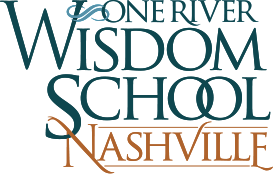Our Practice
Meditation
One River Wisdom School Nashville explores 5 kinds of meditative practice.
Concentration meditation is continuous attention in the present moment to one or more of the following: to the flow of breathing, to sounds arising and passing away in the soundscape, and to sensations as they manifest in the body. The repetition of a mantra is also a form of concentration meditation.
Choiceless Awareness, or vipassana as it is known in Buddhist practice, is present moment awareness of the flow of thoughts, feelings, and sensory experience. In Choiceless Awareness, we allow all these contents in the mindstream to arise from and pass away into the background of awareness.
Lovingkindness, or metta meditation. cultivates unconditional friendliness toward ourselves and all beings.
When this Lovingkindness meets suffering, it turns to Compassion for all beings so that we might be free from suffering and free to care for all who suffer, without exception.
Pure Awareness meditation, as it is called in Theravada Buddhism, is the awareness of Awareness itself, the turning of awareness upon itself. YOU ARE THIS AWARENESS, the space that is allowing everything to be as it is. Tibetans call this practice Dzogchen, The Natural Great Perfection.
Inquiry, an introspective practice, is a way of stepping into the Greater Knowing of Awareness
that is beyond our familiar, personal, lesser knowing. Using Inquiry, we might ask:
“Who or what am I?”
“How is Awareness relating to this moment?”
\”What is my True Nature?”
Dharma talks
Each week at One River Nashville, after our opening meditation of twenty-five minutes, there is a Dharma Talk that explores the intersection of Perennial Wisdom and Contemplative Practice with daily life. The teaching draws on the Wisdom Traditions of Buddhism, Christian contemplative practice, Advaita Vedanta Inquiry, mystical Judaism, and the wide range of Wisdom teachings in other spiritual traditions.
Among the topics addressed are contemplative practice, the transformation and healing of emotional distress, community building, and engagement with larger social issues. There are also times we do satsang, which means “association in truth.” These times offer the chance to ask questions about spiritual practice and the practitioner’s life.
Qigong
Qi, or chi, is the subtle force in which all of us \”live and move and have our being.” As air is to birds, and water is to fish, so chi is to all life. Qigong is one form of mindful movement. You’ll see a video of Kathy Woods offering Qigong instruction below. We always include Qigong as a part of the One River weekend retreats that Rabbi Rami Shapiro and Gordon Peerman offer.
